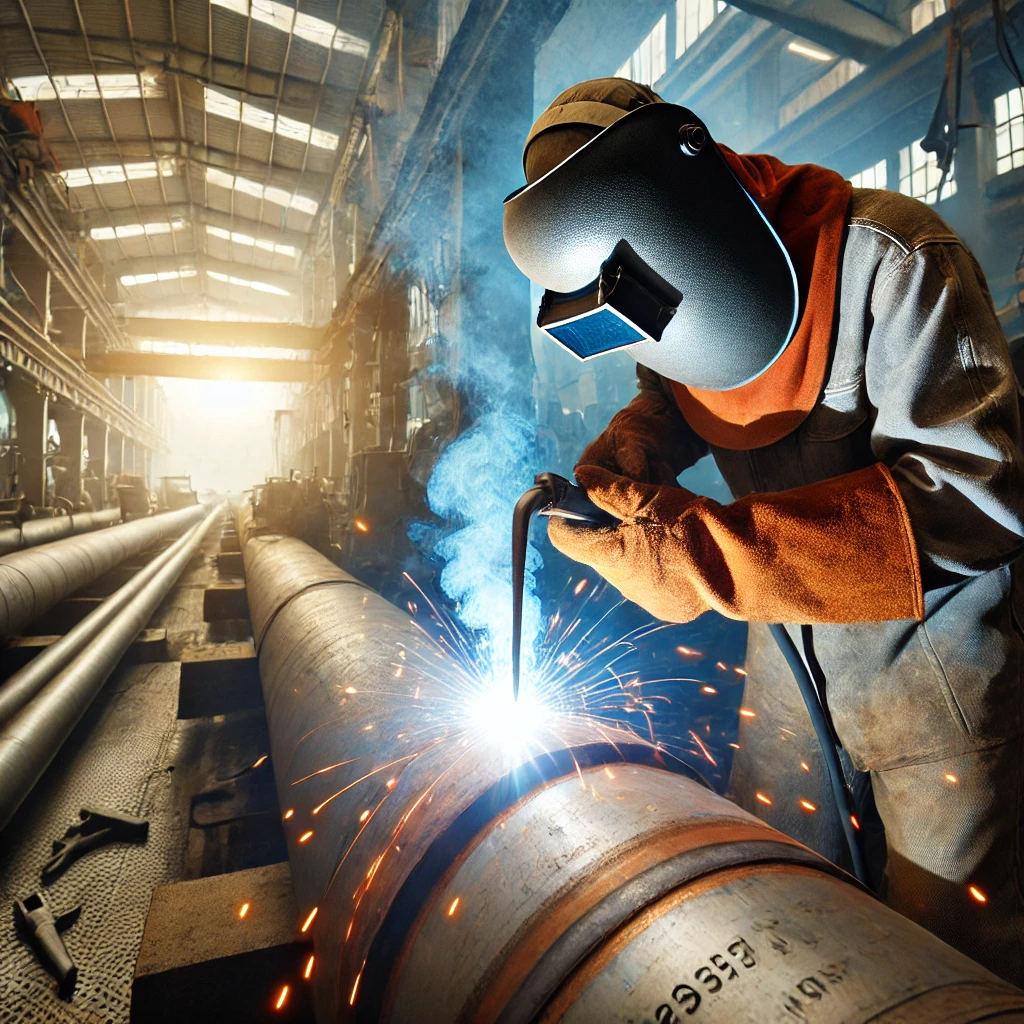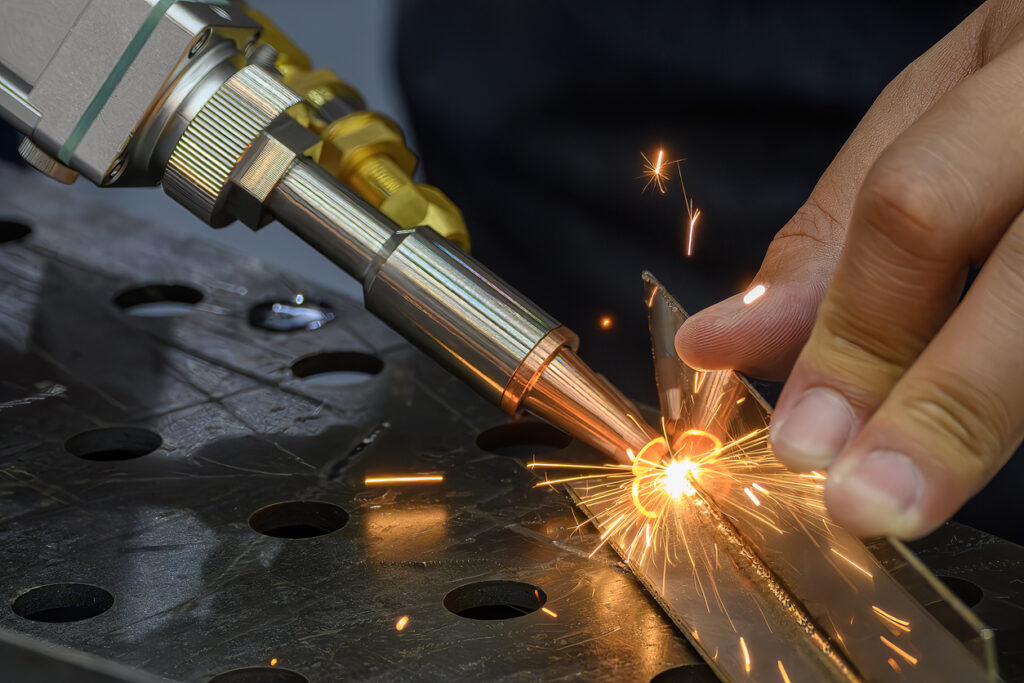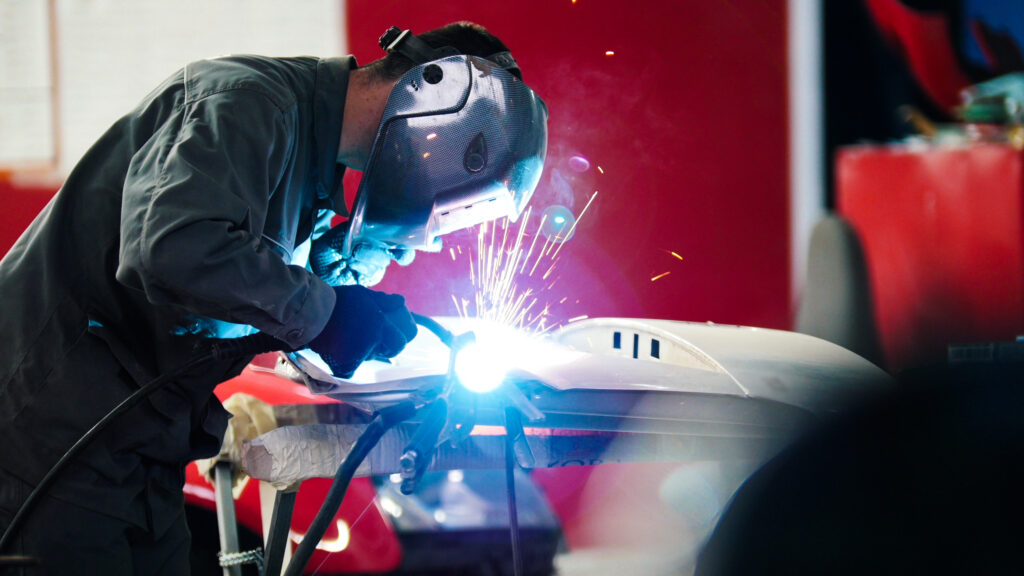From simple welders to specialists
If you would like to make a career as a welder, there are several requirements that you should meet. If you have these, then nothing stands in your way to a permanent and well-paid job with good promotion opportunities.
Table of contents
Estimated reading time: 11 minutes
What are the requirements for the welding profession?
To make a career, and this applies to all forms of careers, you not only have to be good at your job, you also have to be suited to that job. It has to be fun and you have to be happy when you slowly move up in it over time. A job as a welder suits anyone who meets these requirements:
- Enjoy working with heavy equipment
- Operating robust machines
- Modern technology and robots, as well as automated processes, appeal to you
- You enjoy working in the fresh air or outdoors
- You enjoy being on the road and are also happy to work longer assembly assignments
- You love to see the results of your work immediately
What career opportunities are there?
If you meet the above requirements, then nothing stands in the way of your career as a welder. You can follow these steps on your way to the top:
- The Welding technician: -A welding technician manages the various welding projects. They monitor the work processes and are responsible for ensuring that safety and quality standards are met.
- The Welding engineer:A welding engineer manages welding projects and is also responsible for ensuring compliance with technical standards. They optimize the welding process in terms of results and cost-effectiveness, often enough in a complex and challenging environment. In addition to a welding license, a university degree is also required.
- The Construction mechanic:The construction mechanic assembles complex metal structures. This includes welding, but often goes far beyond this.
How does a career become successful?
In addition to the prerequisites before starting your career, there are also other opportunities on the way to the top that promote advancement. These include:
- The Mastery of specialized welding processes:Those who only master the standard processes, including TIG, MIG and MAG, are attractive, but are also exposed to strong competitive pressure. Those who specialize can advance more quickly in this area, as there are not always enough other welders who can take on a task. Specialization is also the ticket to particular industries, such as aerospace and medical technology. The pay there is usually much better.
- The latest specialist knowledge: Specialist knowledge, especially with regards to new technologies and processes, should always be kept up to date. This makes the welder in question much more valuable to the employer.
- International welding certificates:If skills are also proven through international examinations, the range of potential applications increases significantly, as the entire world becomes available as a potential field of work.
- CAD and CAM:Welding technicians who are familiar with CAD and CAM can also monitor and carry out automated production processes. This also considerably expands the field of application.
What specializations are there?
There are almost countless opportunities for a welder to specialize in. A small selection of these can be found here:
Underwater welding
The demands on the welder are particularly high here, which also ensures equally high pay. The welder must not only be able to produce a good weld seam in an extreme environment. He must also feel comfortable enough in this environment to be able to concentrate on his work.
Two training courses are required for the profession of underwater welding. The first is welding, where the focus is on the processes that can be used underwater. The other training is that of a professional diver.


Pipe welding
Pipe welders are in extremely high demand, which is easy to understand considering that pipes are the most efficient way to transport liquids, free-flowing solids, gases, and vapors—especially when this needs to be done economically.
Most pipes are made of metal segments that are joined together. While there are exceptions, such as concrete pipes for sewage, the majority of pipes are metal and are welded together. Even pipelines are often welded by hand, one of the reasons being that several different welding positions are required.
To weld pipes, a separate certification, the IIW diploma, must be obtained. However, this certification consists of several specializations. After completing welding technology, certificates as a sheet metal welder and fillet welder are also required. Additionally, pipe welder certificates are only valid for specific processes. For example, if you hold a diploma as a gas pipe welder, you can only weld gas pipes correctly and cannot work as a TIG pipe welder.
Manual arc welding
Manual arc welding is actually a relatively old process and it is also relatively easy to learn. Why should you specialize in this area? Because it is a very widespread process. It is easy to use in many areas, so there is always a strong demand for welders who can use this process.
There is also a separate training course for manual arc welding. While the process is rather simple at first glance, it places considerable demands on the welder if the work is to be of good quality.


Autogenous welding
In many cases, welding is carried out using an electric current, for example like in arc welding or resistance welding. However, this does not mean that older processes such as oxyfuel or gas welding no longer play a role. Two gases, acetylene and oxygen, are used for these processes. The welder holds a gas welding torch with one hand and sometimes a welding rod with the other.
Oxyfuel or gas welding is slower, as it takes longer to apply heat to the workpiece. Accordingly, the process places greater demands on the welder and their handling of the oxyfuel welding machine.
This process can be practiced through training as a gas welder. While it may not be one of the latest, trendy techniques, it still demonstrates its importance, highlighting the need for welders skilled in oxyfuel welding. This is because gas welding is the only method suitable for certain types of joints.
TIG welding
TIG welding is not necessarily the newest welding process, but it is not the oldest either. Nevertheless, it comes with its own challenges, meaning that it requires its own training.
TIG welding offers considerable career opportunities for welders, as it has become the most important process in many industries. This is because it produces weld seams of a very high quality.
In addition, gas TIG welding can be used to weld all materials that can be melted. This means that even exotic alloys can be joined. In addition, the heat input into the surrounding material is lower than is the case with other processes.
However, the process itself is not necessarily very easy for the TIG welder to carry out. The same challenges apply here as with all electric welding. At the same time, both hands must perform different movements in a coordinated manner. This is particularly strenuous whenever this is done in postures that place their own demands on the person.
There is a separate TIG welding course for TIG welding. It is worthwhile as it can be used for many materials for which there is no other alternative. However, it is necessary to train well before the TIG welding course in order to be able to perform various coordinated actions with both hands mentally and physically at the same time. Find out more >>>
Laser welding
Laser welding is often used for very small weld seams due to the high focus. This is a particular challenge when the process is used by hand. Even the smallest movements can ruin the success. This applies in all 3 dimensions. Accordingly, there is also a separate training course here. Above all, the laser welder must have steady hands when using a manual laser welding machine. However, the process is very important, especially when laser welding aluminum, so it is worth the effort of learning. Learn more >>>

Shipbuilding welding
Ships are typically prefabricated in parts, which are then assembled and joined at the shipyard. This means that welding is integral to modern shipbuilding. In most cases, a general welding qualification is sufficient for this work.
While there are 130 shipyards in Germany alone, there are two major disadvantages associated with this. The first is that the shipyards are naturally concentrated in northern Germany. The second is that they are very dependent on the economy and the world market. Therefore, an internationally recognized welding certificate is a great help here in order to maintain a secure income even in times of economic downturn.
Plastic welding
Plastics can often be shaped under heat and, therefore, welded. However, there are high requirements if this is to be done with good quality. For instance, plastic is neither conductive nor does it usually have a high melting point. As a result, it is essential to work very carefully with the appropriate equipment.
There are various qualifications for plastic welding. These depend on the welding process and the area of application. However, reduced protective equipment is required for the plastic welder, as the temperatures are much lower.
Conclusion
For a career, working as a welder must be fun. In addition, you must want to continue to develop with your specialization and general training. Ultimately, it also depends on the right specialization itself. It must suit you and be in demand.
Related topics:
